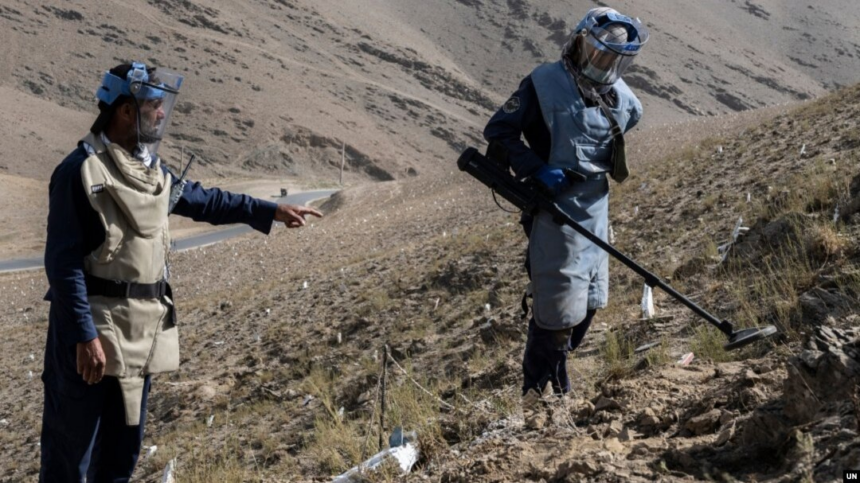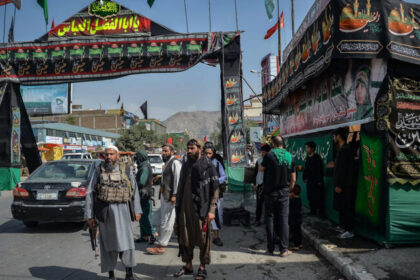RASC News Agency: The international humanitarian organization The HALO Trust has issued an alarming new report warning that more than 6.4 million Afghanistani civilians continue to live under the constant threat of landmines and explosive remnants of war deadly legacies of four decades of conflict and neglect. Despite the magnitude of this crisis, the Taliban regime has failed to develop or implement any meaningful national demining strategy, leaving millions at risk. Published on Tuesday, June 10, the report highlights that Afghanistan remains one of the most heavily mined countries in the world, where explosive devices indiscriminately claim lives and limbs, regardless of age, gender, or ethnicity. According to The HALO Trust, around 50 civilians are killed or maimed each month, with an overwhelming 80% of the victims being children a harrowing testament to the ongoing insecurity and vulnerability of Afghanistani youth.
“These numbers should shake the conscience of the international community,” said Farid Homayoun, a senior field coordinator at HALO Trust. “But worse still is the fact that the Afghanistani population has been largely abandoned caught between foreign disengagement and the Taliban’s gross incompetence.” While humanitarian organizations have been laboring for decades to clear Afghanistan’s contaminated terrain, recent funding cuts particularly the suspension of U.S. aid in 2025 have brought these vital efforts to the brink of collapse. The HALO Trust warns that, unless international support is urgently restored, the country is at risk of witnessing a “silent humanitarian catastrophe” that will stretch across generations.
The report reveals that one in five Afghanistani citizens has directly or indirectly benefited from demining operations. Since its operations began in 1988, The HALO Trust has cleared nearly 1,400 square kilometers of land, improving the safety and quality of life for over 17 million people. These figures underscore the importance of sustained global engagement now jeopardized by aid fatigue and the Taliban’s misrule. Despite its control over the country since August 2021, the Taliban has demonstrated no capacity or political will to address the landmine crisis, nor has it acknowledged the full scale of the human suffering it continues to perpetuate. Instead, the regime has remained focused on consolidating authoritarian power, enforcing regressive policies, and silencing civil society leaving communities, especially in remote and war-affected regions, dangerously exposed to explosive hazards.
The landmine crisis is not merely a matter of public safety; it is a profound impediment to economic recovery, agricultural productivity, education, and human mobility. Thousands of hectares of arable land remain unusable, families are unable to return to their ancestral homes, and entire villages are effectively imprisoned within contaminated perimeters. The United Nations has repeatedly raised alarms about the devastating consequences of underfunded mine action programs, emphasizing that demining is a prerequisite for sustainable peace and reconstruction. Yet, under Taliban rule, the country’s most basic development and security needs are met with indifference, denial, or delay.
As the world looks away, millions of Afghanistani children walk to school on mined roads, farmers sow seeds in fields seeded with death, and displaced families return to shattered homes littered with lethal devices. The humanitarian crisis unfolding beneath the soil of Afghanistan is no less urgent than those above it and it is time for the world to response.






